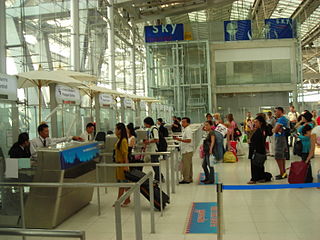NOTE: This article focuses on the United States, though some of its points may be more generally applicable.
In a blog post I’m currently drafting (which will hopefully be published shortly after this one) I note BK’s criticism of open borders advocates such as Bryan Caplan — pro-migration forces as they actually exist are opposed to all the keyhole solutions that might actually alleviate the concerns of moderate critics of open borders. By siding with these “pro-migration forces” open borders advocates make it appear that their advocacy of keyhole solutions to deal with the problems of migration is a mere rhetorical fig leaf offered to critics of open borders. Here’s an excerpt from BK’s comment:
Those changes [making keyhole solutions politically feasible] would require a big political effort, since pro-migration political forces are mostly very opposed to keyhole solutions since they expect to benefit politically from bringing in immigrants that will vote for them. And so, to implement a Singapore-style solution the key step would be to push to create the legal apparatus and will to enforce that apparatus *before* adding tens of millions of recent low-skill migrants to the electorate.
On the other hand, live immigration proposals of recent years have called for amnesty of all existing illegal immigrants in the U.S. with tens of millions more to follow via family sponsorships, and reduced enforcement to enable more low-skill migration. This would drastically change the political landscape, to the disfavor of keyhole solutions. Recall that support for immigration is the area where recent migrants are most different from locals.
So generalized pro-immigration ideological pushes strengthen the opponents of keyhole solutions more than they support keyhole solutions. And in practice Bryan and folk at this site do seem to use keyhole solutions primarily as a rhetorical fig-leaf to deflect opposition and shut down conversations.
Although BK doesn’t offer any specific links, I think he’s [NOTE: I have strong reason to believe BK is male, even though it’s not obvious from the comment text, so I’ll use “he” to refer to BK] mostly on point regarding the “pro-migration” and even more broadly the “pro-immigrant” forces (even if we ignore pro-immigrant restrictionists for the moment). Frankly, I think that a lot of the pro-migration and pro-immigrant forces aren’t interested in anything approaching open borders, and may not even be supportive of expanded immigration. In fact, I suspect that a lot of what motivates immigrants’ rights activists is territorialism, an ideology that, unlike citizenism, is interested in the welfare and protection of rights of all people who are within the geographical area of the nation, regardless of their citizenship status and of whether they are authorized or unauthorized. Added: A lot of immigrant rights’ activists are also susceptible to local inequality aversion, another obstruction to keyhole solutions.
I will look at a few groups that are often (rightly or wrongly) labeled as pro-immigrant and study how their efforts might help or hurt the development of keyhole solutions.
American Civil Liberties Union
A classic example of territorialism is the American Civil Liberties Union (ACLU). The ACLU is at the forefront of defending the rights of immigrants, including “illegal” immigrants, via their Immigrants’ Rights Project. I’ve read through a number of pages on the ACLU website, and it seems to me that the ACLU takes no position on what immigration law itself should be. In fact, they concede that the US has collective property rights and can set more or less any immigration policy. The only thing they object to is inhumane deportations. From their Immigrants’ Rights Project page:
Our nation has unquestioned authority to control its borders and to regulate immigration. But we must exercise the awesome power to exclude or deport immigrants consistent with the rule of law, the fundamental norms of humanity and the requirements of the Constitution.
And they seem to take no position on the civil liberties and human rights of non-US people when they are not in US territory.
Now, you might say that this is just part of the “division of labor” that Nathan highlighted in this post. The ACLU is the American (US) Civil Liberties Union, which means that their scope is explicitly limited to what happens within the territory and jurisdiction of the United States. This means that, definitionally, qua organization, they cannot be concerned about the violation of rights of people outside the territory or jurisdiction of the United States, even if individuals at the ACLU feel strongly about these issues. Fair enough. Continue reading Are immigrant rights activists friends of open borders?

